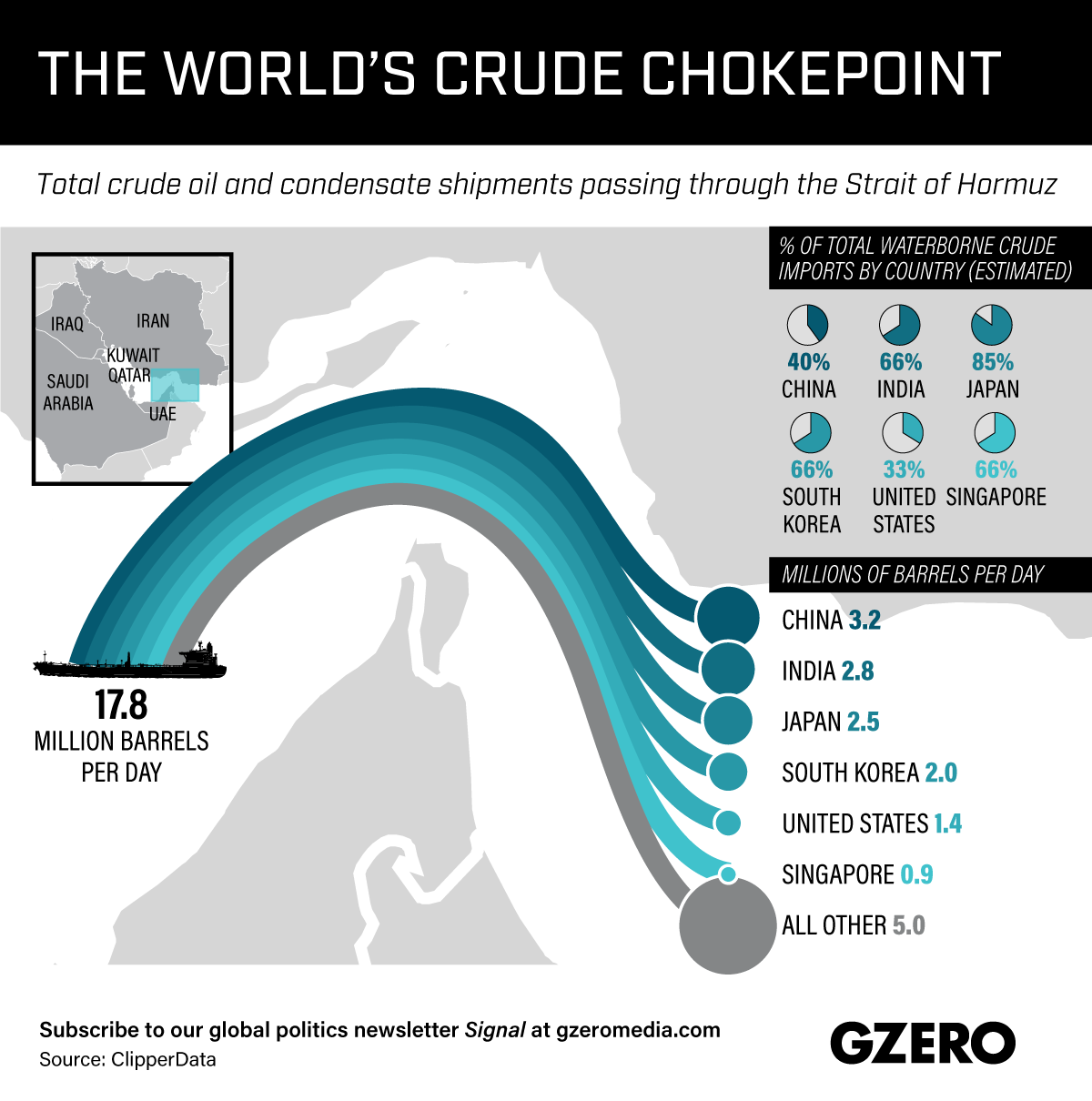June 26, 2019
Rising tensions between the US and Iran threaten the security of the Strait of Hormuz, a narrow waterway plied daily by dozens of tankers carrying oil out to the rest of the world from Qatar, Saudi Arabia, Iran, Iraq, Kuwait, and the United Arab Emirates. At the moment, the US Navy provides security in the international waters there, but President Trump has suggested other major oil consuming countries should pitch in more to help. Here's a look at the countries that are most dependent on oil exports shipped through the world's most important energy chokepoint.
More For You
Americans are moving less — and renting more. Cooling migration and rising vacancy rates, especially across the Sunbelt, have flattened rent growth and given renters new leverage. For many lower-income households, that relief is beginning to show up in discretionary spending. Explore what's changing in US housing by subscribing to Bank of America Institute.
Most Popular
Walmart sponsored posts
Walmart’s commitment to US-made products
What's Good Wednesdays
What’s Good Wednesdays™, February 4, 2026
World Central Kitchen staff hand out free soup in a neighbourhood that experiences electricity and heating outages following recent Russian attacks on Ukraine’s civilian infrastructure during subzero temperatures in Kyiv, Ukraine February 3, 2026.
REUTERS/Thomas Peter
1,170: The number of high-rise buildings in Kyiv that were left without heating following a barrage of Russian attacks last night on Ukraine’s capital and its energy facilities, per Kyiv Mayor Vitali Klitschko.
Protesters gather during a candlelight vigil, and interfaith prayer at Fort Lauderdale-Hollywood International Airport as airport workers and faith leaders rally calling on the federal government to extend Temporary Protected Status for Haiti on Jan. 28, 2026.
Diaz/Miami Herald via ZUMA Press Wire
Over the past five years, Haiti has endured extreme political turmoil, escalating violence, and one of the world’s worst humanitarian crises.
Microsoft unveiled a new set of commitments guiding its community‑first approach to AI infrastructure development. The strategy focuses on energy affordability, water efficiency, job creation, local investment, and AI‑driven skilling. As demand for digital infrastructure accelerates, the company is pushing a new model for responsible datacenter growth — one built on sustainability, economic mobility, and long‑term partnership with the communities that host it. The move signals how AI infrastructure is reshaping local economies and what people expect from the tech shaping their future. Read the full blog here.
© 2025 GZERO Media. All Rights Reserved | A Eurasia Group media company.
